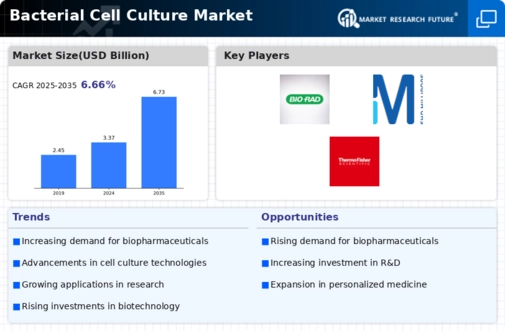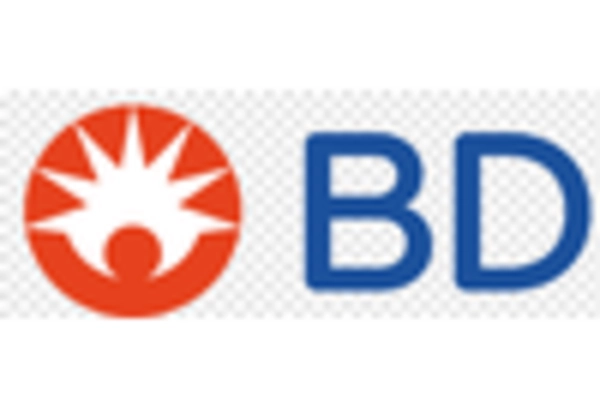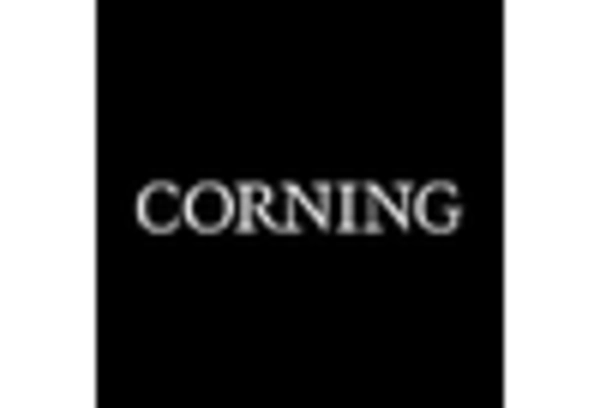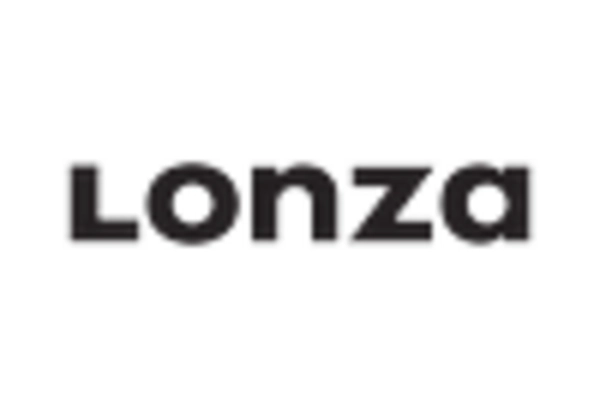Market Trends
Key Emerging Trends in the Bacterial Cell Culture Market
Biotechnology and drug growth is making the bacterial cell culture business grow very quickly. Businesses that use cell culture to make medicines, vaccines, and other bio-based goods are raising the need for bacterial cell culture products. The need for bacterial cell culture is growing because of study in genetics, microbiology, and finding new medicines. Scientists can study microbial activity, find disease genetic pathways, and make new drugs by growing bacteria in lab dishes. Bacterial cell growth system technology is getting better and better on the market. Bicrobial cell culture methods are getting easier to use and more scalable thanks to changes in bioreactor design, culture medium formulas, and automation. These changes are made to meet the needs of the biotech and research industries. When modified enzymes, proteins, and medicines are needed, bacterial cell culture is used more. Escherichia coli (E. coli) is used to make hybrid proteins because it grows quickly and their genes can be changed. The bacterial cell culture business is being affected by the growing focus on personalized treatment. Scientists are growing cells from cows to make personalized medicines, such as gene therapy bacterial vectors and treatments that are just right for each patient. In bacterial cell culture, chemically defined and serum-free environments are being used more and more. This method gives better controlled and repeatable conditions for bacterial cell growth, which eases worries about the safety and instability of serum-containing media. Single-use bioreactors are being used by more and more bacterial cell cultures. Because they are cheap, have low cross-contamination risk, and can be used in both study and business, these bioreactors are useful. Quality control and guarantee are becoming very important in the bacterial cell culture industry. Life science and biotech companies use strict quality control methods to make sure that cell culture goods are always reliable and uniform. Two of the biggest companies that grow bacterial cells are working together to make more products and get a bigger piece of the market. These associations often combine cutting-edge technology, specialized expertise, and adequate resources to provide innovative bacterial cell culture solutions for the industry. More companies are becoming green. Companies are investigating recyclable or biodegradable materials and renewable energy for bacteria growth. This accords with life sciences' longevity trend.


















Leave a Comment